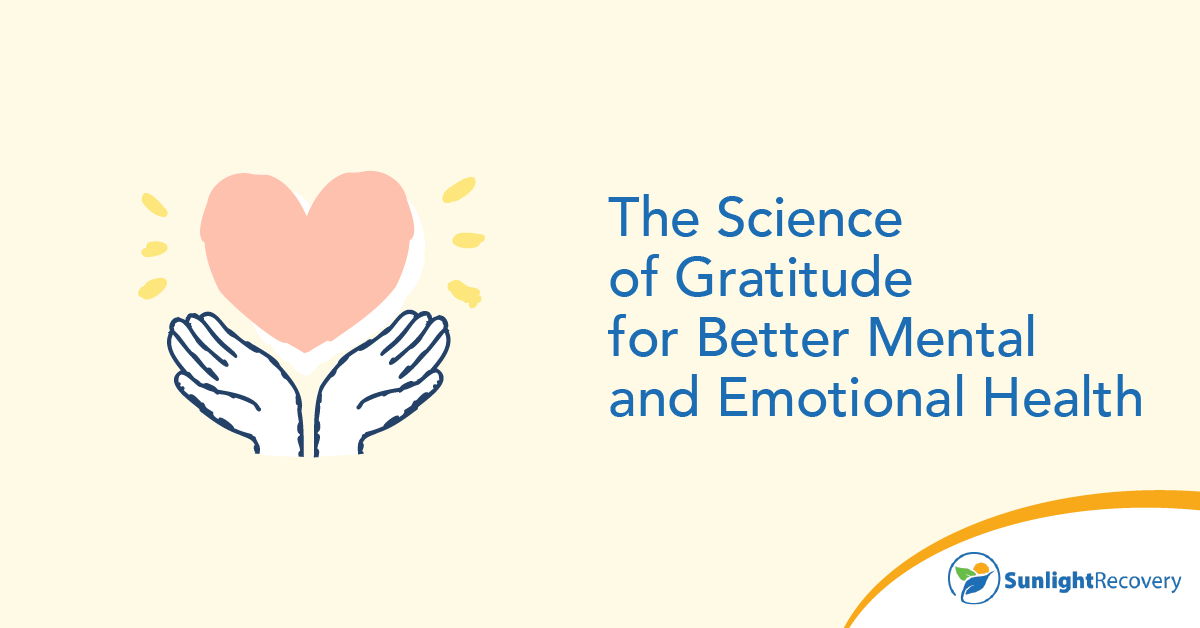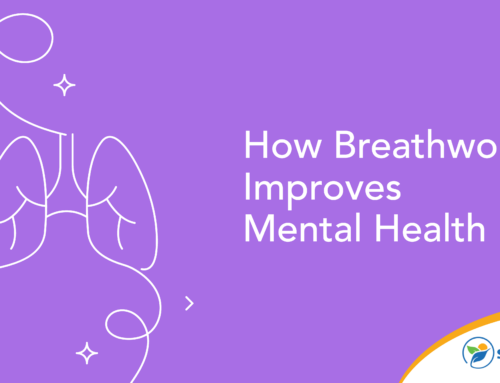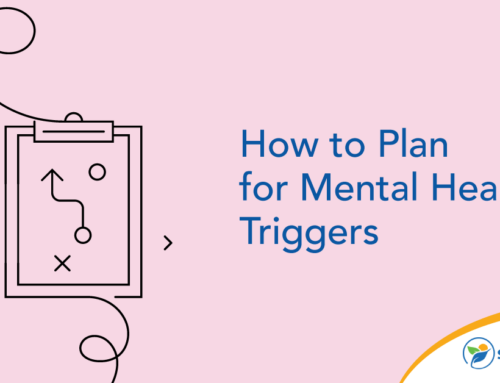In a world filled with daily stressors and challenges, it’s easy to focus on what’s going wrong rather than what’s going right. When struggling with mental health issues, you might get caught in cycles of negative thinking that seem impossible to break. However, there’s a simple yet powerful practice that can help shift your perspective and improve your emotional well-being: gratitude. When you practice it regularly, gratitude changes the brain and can improve mood, reduce anxiety and support overall mental health recovery.
What Is Gratitude and Why Does It Matter?
Practicing gratitude involves recognizing and appreciating the positive aspects of your life, even during difficult times. It’s about noticing the small moments of beauty, kindness and connection that often get overlooked when you’re struggling.
This practice matters because it changes the way you experience your world. Instead of defaulting to thoughts about what’s missing or disappointing, gratitude helps you notice what’s working and what brings meaning to your life. Gratitude isn’t about denying problems. You can acknowledge difficulties while still recognizing positive elements.
For people in recovery from mental health issues, gratitude can help provide a practical tool for shifting thought patterns. Instead of getting caught in negative cycles or worry, you can redirect attention toward appreciation and acknowledgment of progress.
How Gratitude Changes the Brain and Mood
The science of gratitude shows that this practice creates measurable changes in brain function for some people. When you regularly practice gratitude, your brain rewires itself to support better emotional regulation and mental health.
- Gratitude strengthens neural pathways associated with positive emotions while weakening those connected to negative thought patterns. This process, called neuroplasticity, means your brain becomes better at noticing and appreciating positive experiences over time.
- The prefrontal cortex, responsible for decision-making and emotional regulation, becomes more active during gratitude practices. This helps you manage difficult emotions more effectively and make better choices about responding to stressful situations.
- Regular gratitude practice can increase dopamine and serotonin levels — the same chemicals targeted by antidepressant medications. This natural boost in mood-regulating chemicals can reduce symptoms of depression and anxiety while activating your parasympathetic nervous system, which counters chronic stress responses.
- Brain imaging shows people who practice gratitude regularly have increased activity in areas associated with empathy, compassion and social connection, which are all important for mental health recovery.
Research on Gratitude and Mental Health Outcomes
Studies demonstrate the science of gratitude and its impact on mental health. Research shows that people who kept weekly gratitude journals reported feeling more optimistic and exercised more regularly than control groups. Participants who wrote about gratitude experienced better mental health outcomes than those who received therapy alone.
Those who practiced gratitude showed significantly greater improvements both immediately and months later. These gratitude practices may help reduce depressive symptoms when practiced consistently
Simple Practices to Cultivate Gratitude
Developing a gratitude practice doesn’t require special equipment or extensive training. Simple, consistent practices can help you harness gratitude’s power to support your mental health.
- Gratitude journaling represents one of the most accessible approaches. Writing down three to five things you’re grateful for each day helps train your brain to notice positive things. These don’t need to be major events. You can find positivity in simple pleasures like a warm cup of coffee, a text from a friend or a moment of sunshine on a cloudy day.
- Gratitude letters involve writing detailed notes to people who’ve positively impacted your life. You don’t need to send these letters, though doing so can strengthen relationships. The act of writing helps you reflect deeply on positive experiences.
- Mindful gratitude involves taking moments throughout your day to pause and appreciate your immediate experience. This might mean noticing the feeling of your feet on the ground, appreciating a beautiful sky or acknowledging your body’s ability to breathe without conscious effort.
- Gratitude meditation combines mindfulness with appreciation. Spending even a few minutes focusing on things you’re grateful for can help shift your mental state and create beneficial brain changes.
- Creating gratitude rituals around meals, bedtime or other daily activities helps integrate appreciation into your routine. Simply taking a moment to appreciate your food or acknowledge something positive about your day can be powerful.
Gratitude in Therapy and Recovery Settings
Mental health professionals often incorporate gratitude practices into treatment plans because of their proven effectiveness. These practices complement traditional therapy approaches and provide practical tools you can use independently.
In cognitive behavioral therapy, gratitude exercises can help challenge negative thought patterns. When you’re stuck in cycles of pessimistic thinking, gratitude can provide evidence that contradicts overly negative perspectives.
For people recovering from substance use disorders, gratitude can be particularly useful. Addiction often involves focusing on what’s lacking, while recovery requires recognizing positive changes and progress.
In trauma therapy, gratitude practices are introduced carefully, as focusing on positive aspects can initially feel difficult for some people. Skilled therapists integrate gratitude in ways that support healing rather than creating additional pressure.
Integrating Gratitude Into Daily Life
Making gratitude a consistent part of your life requires intention but doesn’t need to feel overwhelming. Small, regular practices tend to be more effective than occasional intense efforts.
- Morning gratitude practices help set a positive tone for your day. Taking a few minutes upon waking to appreciate something about your life can create momentum that carries through daily activities.
- Evening reflection provides another natural time for gratitude practice. Reviewing positive moments from your day before sleep helps end on an appreciative note and can improve sleep quality.
- Gratitude interventions in relationships can help strengthen bonds and create positive interactions. Expressing appreciation to family, friends, coworkers and even strangers helps build the social connections that support mental health.
Challenging times offer opportunities to practice gratitude in deeper ways. Looking for small positives during difficult periods helps build resilience and maintains hope.
The science of gratitude demonstrates that this simple practice can create profound changes in brain function and emotional well-being. Research confirms that gratitude changes the brain through consistent practice, and the benefits compound over time.
Remember that gratitude isn’t about avoiding necessary changes — it’s about developing a balanced perspective that includes appreciation alongside acknowledgment of challenges and goals for growth.
Let Us Help
At Sunlight Recovery, we understand that lasting mental health recovery involves developing practical tools that support your well-being. Gratitude practices represent one powerful approach that can complement professional treatment and provide ongoing support for your healing journey. If you’re ready to explore how gratitude and other evidence-based practices can support your recovery, contact us today to learn more about our comprehensive approach to mental health and addiction treatment.







